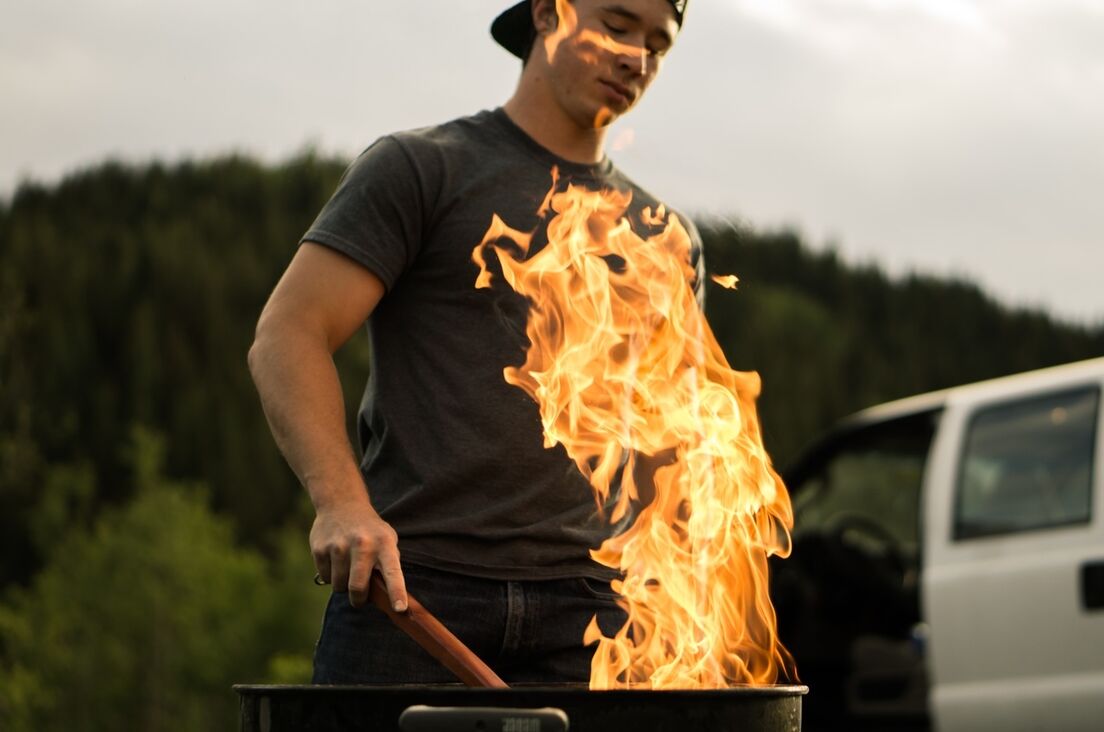Plantaardig pionieren
Het verhaal van twee boeren met een missie: het realiseren van de eerste plantaardige cappuccino op basis van soja van Nederlandse bodem.


We’ve talked about talking about good food, and why that is so hard.1 But even though talking about good food is hard, ‘doing’ the good food thing is even harder. I mean: buying and consuming food that’s good for you, other people, animals, and the planet. Food that’s tasty, healthy, fair, green and affordable. This is like the endgame of food.
In this article, we’ll look at an important reason why this is so freaking difficult. We’ll also look at an important reason why the difficulty shouldn’t hold you back, and you should keep going, keep striving to make better food choices.
In theory, it’s all so easy. You win the endgame of food by making responsible choices and eating good food. You do this by reclaiming your autonomy2 and implementing the four F’s3. But to actually start practicing what you preach... Why is this so difficult? Why do we struggle to actually make a change?
Because most problems related to food – whether they are social, economic, or environmental – are so-called ‘Problems of Many Hands’. These are problems to which many hands contribute. What’s in a name?
To grasp the idea of a Problem of Many Hands, imagine this. You pick up a pebble and throw it in a river. Another person walks past, and does the same thing. And another person, and another. Small pebbles add up to big piles, and in time, the flow of the river is changed, or even completely obstructed.
The effects of a single action might be negligible. But the combined effects of many single and negligible actions may constitute major problems. And this is the case with a lot of our personal food choices. They often only become, or contribute to, a big problem, once we see them as part of a big picture.

Take for example eating meat. To eat meat, you need, well, meat, so cattle. Cattle produces methane, an important greenhouse gas. It’s safe to say that the contribution of one cow to the general level of methane in the atmosphere is so small, that its overall effect on climate change is negligible. But now think of the effect of 1.5 billion cows. Yeah. There you have a Problem of Many Hands (or Hooves).
These Many Hands form a Problem, because they make it difficult for us to understand our responsibility. When many hands (attached to many people) are involved, it is virtually impossible to pinpoint whose hands are responsible for what. Who created the problem? And who should solve it?
But these difficulties, I believe, only arise because we confuse two perspectives: the small and the big, the personal and the general. And because of this, we mix up different types of responsibility: our individual and our collective responsibility.
True story: I did not personally create the big problems the world now faces. Problems like the unfair treatment of farm workers, inequitable trade, climate change or environmental degradation. Therefore, I am not individually responsible for, let alone capable of, solving them all by myself.
But, and this is also a true story, on a societal level, I belong to a community that did create them. As part of this community I share in the collective responsibility to work toward solutions.

Problems come a’ knocking if you try to solve big problems from a small and personal space. You then cannot help but feel that it doesn’t really matter what you do. It’s little you vs. big problem. One person giving up eating animals or sourcing food locally is not going to make a difference. So why bother?
Hold up! What goes wrong here, is that you look at large-scale problems from a zoomed-in perspective. You confuse what you should do with what weshould do. As a group – a class, a country, humanity. If you get stuck in this zoomed-in perspective, you cannot make sense of collective responsibility. If you isolate yourself, you’ll never see yourself as part of a bigger, holistic picture.
Once you zoom out, you see that all is connected. That you are shaped by things that happen outside of you, and in turn influence the way of the world. Your influence might be small, but significant. As part of a group, one person can make a difference. Even start a revolution! Dynamite comes in small packages.
Getting stuck in the zoomed-in perspective makes us negative and lethargic, because it draws our focus to what we cannot change individually. Zooming out, on the other hand, makes us positive and energetic, because it opens our eyes to all the things we can change collectively.
But to carry the weight of the world together, it is paramount to focus on the appropriate perspective. Zoom out, zoom out, wherever you are. Reach out to others, connect and unite. Only this will enable us to deal with Problems of Many Hands, and see them for what they really are – problems to which many hands contributed. Just as many hands will be needed to solve them.
Don’t see this as a burden, see this as a challenge. In the endgame of food, it is not little you vs. big problem. It is all of us, united for a better future.
Endgame on.